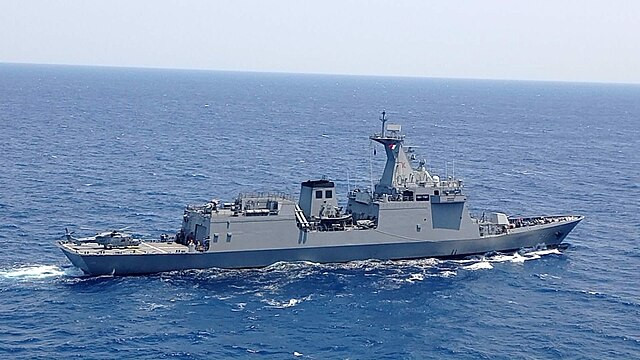In a significant display of maritime collaboration, the coast guards of the Philippines and Vietnam conducted their first-ever joint exercises in Manila Bay on Friday, marking a new chapter in the two nations' efforts to bolster regional security and cooperation. The exercises, which included firefighting, search and rescue operations, and medical response simulations, come at a time of heightened tensions in the South China Sea, a region where both countries have long-standing territorial disputes with China.
The Philippine offshore patrol vessel BRP Gabriela Silang and Vietnam's 90-meter-long ship CSB 8002 participated in the drills, which were designed to enhance the interoperability and operational readiness of the two coast guards. The exercises, though focused on humanitarian missions, carry broader implications for the region's security dynamics.
"Our exercise is more on the humanitarian side," said Lawrence Roque, commanding officer of BRP Gabriela Silang, emphasizing the non-combat nature of the drills. "We hope for more of these activities because the sea is large, and many will need assistance from the coast guard."
These drills are part of a broader strategy by the Philippines and Vietnam to strengthen ties and enhance their capabilities in the face of increasing assertiveness by China in the South China Sea. China's expansive claims over nearly the entire South China Sea, enforced through a robust coast guard presence, have been a source of friction with neighboring countries, including the Philippines, Vietnam, and Malaysia. The Chinese coast guard has frequently been accused of aggressive actions that disrupt fishing and energy exploration activities in the exclusive economic zones (EEZs) of these nations.
China, for its part, maintains that its coast guard is acting within its rights to protect its territory from trespassers. However, the actions have raised concerns about potential escalations in the region, where multiple countries have overlapping claims.
The joint exercises between the Philippines and Vietnam follow closely on the heels of two days of maritime drills conducted by the Philippines in collaboration with Australia, Canada, and the United States. This marks the first time these four nations have conducted joint exercises, underscoring a growing commitment to maintaining a "free and open Indo-Pacific," a phrase often used to counter China's influence in the region.
Vietnam's Defense Ministry highlighted the importance of the joint drills, describing the visit of the Vietnamese coast guard ship to Manila as having "profound political significance." The ministry emphasized that these exercises are crucial for promoting comprehensive cooperation and enhancing law enforcement capabilities at sea. The drills also serve as a testament to the two nations' commitment to maintaining peace, stability, security, and safety in the region.
The cooperation between the Philippine and Vietnamese coast guards is rooted in a memorandum of understanding signed in January 2024, which established a joint coast guard committee and a hotline communication mechanism. This agreement has laid the groundwork for closer collaboration between the two nations, particularly in addressing shared maritime challenges.
In recent months, both the Philippines and Vietnam have taken steps to assert their claims in the South China Sea. In July, Vietnam submitted a claim to the United Nations for an extended continental shelf beyond the current 200 nautical miles, following a similar claim by the Philippines in June. The Philippines' Department of Foreign Affairs expressed its willingness to engage Vietnam in discussions to find mutually beneficial solutions to the South China Sea disputes, in line with international law, particularly the United Nations Convention on the Law of the Sea (UNCLOS).
"We acknowledge Vietnam's right, as a coastal state like the Philippines, to submit information to establish the outer limits of their continental shelf beyond 200 nautical miles from the relevant and lawful baselines from which its territorial sea is measured, as provided for under UNCLOS," the Department of Foreign Affairs stated.






